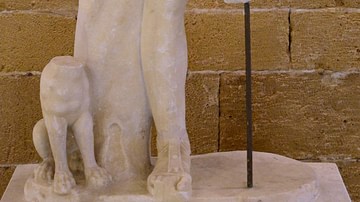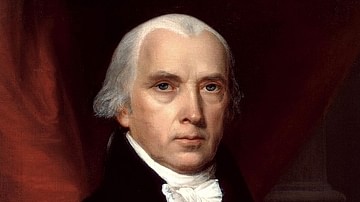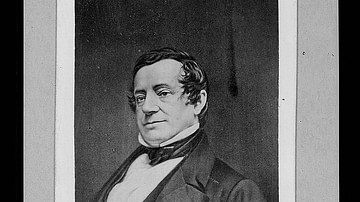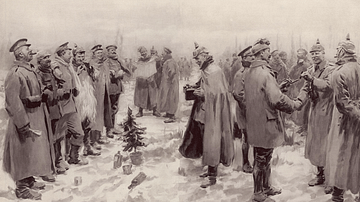Search Definitions
Browse Content (p. 10)

Definition
Britomartis
Britomartis, also known as Diktynna (Dictynna), was the Cretan goddess of hunting and fishing nets in Greek mythology. Although referred to as a nymph and worshipped locally, she had at least two significant and active shrines, one in Crete...

Definition
Herman Melville
Herman Melville (1819-1891) was a 19th-century American author of novels, short stories and poetry. He is best known for his novel Moby Dick, published in 1851, and his short stories Bartleby the Scrivner and Billy Budd, Sailor. Despite his...

Definition
Rudolf Hess
Rudolf Hess (1894-1987) was deputy leader of the German Nazi Party and a key figure in the fascist regime of Adolf Hitler (1889-1945) until his bizarre decision in 1941 to fly to Scotland. Hess believed he could persuade Britain to withdraw...

Definition
James Madison
James Madison (1751-1836) was a statesman, diplomat, and a Founding Father of the United States, who served as the fourth US president from 1809 to 1817. He played an important role in the drafting of the United States Constitution and the...

Definition
Ancient Jordan
Jordan is a country in the Near East bordered by Israel, Syria, Iraq, and Saudi Arabia. The country's name comes from the Arabic Al Urdun, referencing a fortified site but also meaning "prominence", though various sources also claim the name...

Definition
Quran
The Quran (also written Qur’an or Koran), revealed in the 7th century, is the sacred book of Islam, following in the tradition of the Abrahamic faiths, with the Torah as the sacred book of Judaism and the New Testament as the sacred book...

Definition
Phoney War
The Phoney War was the period from the start of the Second World War (1939-45) when Britain and France declared war against Germany on 3 September until the start of significant military action in the West in the spring of 1940. While Poland...

Definition
Reinhard Heydrich - The Infamous Head of Hitler's Reich Security
Reinhard Heydrich (1904-1942) was a lieutenant-general in the Nazi SS organisation, Gestapo chief, and head of Reich security. A favourite of Adolf Hitler (1889-1945), Heydrich controlled all police activity in the Third Reich and was instrumental...

Definition
Washington Irving
Washington Irving (1783-1859) was an American author, essayist, and diplomat best known for his short stories The Legend of Sleepy Hollow and Rip Van Winkle. He was the first professional American author and also the first to achieve an international...

Definition
The Christmas Truce
The Christmas Truce of 1914 occurred on the Western Front during the First World War (1914-18). On Christmas Eve soldiers in the trenches spontaneously agreed to a ceasefire. Beginning with the singing of Christmas carols, the unofficial...